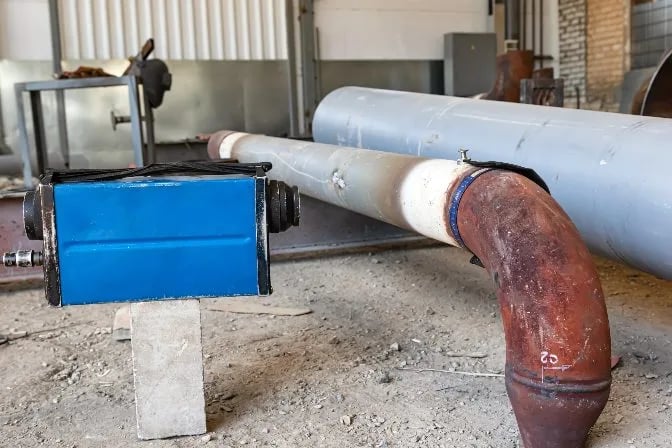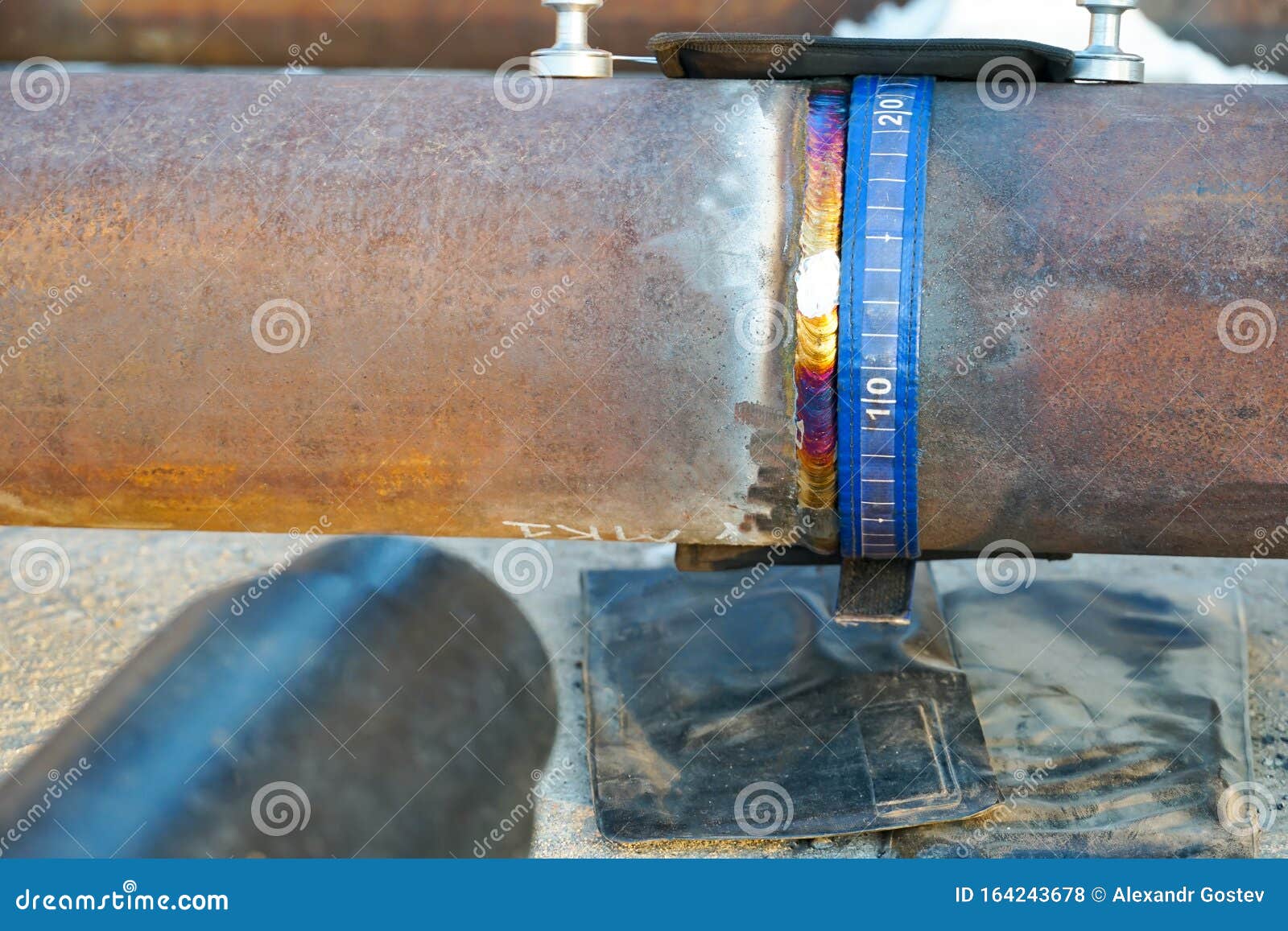Experience Quality: Premier Pipeline Welding Inspection Providers You Can Depend On
Experience Quality: Premier Pipeline Welding Inspection Providers You Can Depend On
Blog Article
Making The Most Of Performance: Pipe Welding Assessment Finest Practices
By executing finest practices for pipeline welding evaluation, organizations can improve processes, minimize errors, and enhance project timelines. The careful focus to detail required in welding inspection holds the vital to the long-term longevity and integrity of the pipelines, making it a topic of utmost value in the market.

Relevance of Effective Welding Examinations
Reliable welding assessments play a vital role in making certain the structural honesty and safety and security of pipes. Appropriate examinations are vital to determine any issues, stoppages, or blemishes in the welded joints that can jeopardize the overall integrity of the pipe system. By carrying out thorough assessments, assessors can find concerns early, protecting against possible leakages, ruptures, or failures that can have serious ecological and safety effects.
Accurate and prompt welding assessments likewise assist in preserving compliance with sector standards and regulations. Complying with these standards is not only a legal demand but additionally an essential procedure to assure the reliability and durability of the pipelines. Moreover, reliable examinations can add to cost savings by reducing the requirement for costly repairs or replacements due to welding defects that can have been stopped or dealt with during the evaluation procedure.
Making Use Of Modern Technology for Evaluations
To enhance the efficiency and accuracy of pipe welding assessments, the integration of advanced technologies has actually become progressively critical in ensuring extensive and accurate evaluations of bonded joints. Using technology for examinations uses many advantages, including raised effectiveness, boosted precision, and improved safety procedures. Among the essential technological innovations in pipe welding inspections is making use of automated ultrasonic testing (AUT) systems. These systems can scan welds rapidly and properly, offering detailed information on prospective flaws or concerns within the weld joint. Furthermore, remote visual inspection (RVI) tools such as robotic crawlers geared up with electronic cameras permit assessors to access and assess difficult-to-reach areas without the requirement for considerable disassembly or hand-operated treatment. The execution of electronic systems for data evaluation and reporting simplifies the assessment process, enabling real-time data analysis and smooth paperwork. By embracing these technical options, pipeline welding inspections can be performed better, resulting in better welds, enhanced overall safety, and lowered job timelines.
Establishing Clear Assessment Protocols
Establishing clear assessment methods is important for making certain uniformity and reliability in the pipeline welding assessment procedure. These protocols serve as a collection of standards that outline the particular steps, requirements, and approaches to be followed during evaluations. By clearly specifying the examination methods, all inspectors associated with the process can comprehend their functions and duties, leading to a more effective and standardized assessment process.

Routine evaluation and updates to the evaluation protocols are also essential to adapt to changing sector criteria and needs. By continually refining and enhancing the procedures based on feedback and lessons found out, pipe welding assessments can maintain the greatest quality standards and governing conformity.
Training and Accreditations for Inspectors

Educating and accreditations for inspectors are extremely important in making sure the competence and effectiveness of individuals tasked with managing pipeline welding procedures - Pipeline Welding Inspection. Correctly educated examiners possess the these details needed knowledge and abilities to efficiently review weld high quality, adherence to welding procedures, and conformity with sector requirements and regulations
Accreditations, such as those offered by the American Welding Culture (AWS) or the American Oil Institute (API), verify an assessor's know-how and ability to do inspections to the greatest standards. These accreditations usually need strenuous training, examinations, and continuous specialist development to make sure that assessors stay present with the most up to date developments in welding innovation and examination techniques.
In site link addition to official qualifications, continuous training programs play a vital duty in enhancing inspectors' abilities. These programs cover a vast array of subjects, including welding processes, problem discovery, safety and security methods, and relevant codes and standards (Pipeline Welding Inspection). By investing in extensive training and accreditations for assessors, firms can promote the honesty of their pipe welding projects and mitigate the risks connected with second-rate welds
Constant Enhancement in Assessment Procedures
Structure upon the structure of licensed and skilled examiners, constant enhancement in assessment procedures is vital for making sure the continuous high quality and compliance of pipeline welding procedures. By applying a system of continuous improvement, pipe welding assessment procedures can develop to satisfy the transforming needs of the market, technological developments, and regulatory requirements. This entails consistently examining and analyzing examination treatments, strategies, and tools to recognize locations for enhancement.
One trick element of continuous renovation in evaluation procedures is comments. Collecting input from examiners, welders, engineers, and various other stakeholders enables a thorough evaluation of existing methods and the identification of prospective locations for improvement. Furthermore, leveraging analytics and data can provide useful insights into the performance of evaluation procedures, enabling educated decision-making for optimization.
Furthermore, buying training and development programs for examiners can make certain that they are geared up with the most recent knowledge and skills to do their responsibilities successfully. Continuous enhancement is a vibrant process that requires commitment and dedication from all stakeholders to drive excellence in pipeline welding assessment techniques.
Conclusion
To conclude, maximizing performance in pipeline welding inspections is critical for making sure the quality and safety and security of facilities projects. By using technology, developing clear protocols, giving appropriate training and certifications for examiners, and continuously enhancing inspection procedures, organizations can enhance their operations and lessen threats. It is necessary for industries to focus on efficient welding assessments to maintain high requirements and fulfill regulatory demands.
Reliable evaluations can add to cost savings by lessening the need for expensive fixings or replacements due to welding problems that can have been prevented or remedied throughout the inspection process.
Developing clear inspection protocols is necessary for ensuring consistency and dependability in the pipe welding examination process. By clearly defining the assessment methods, all assessors involved in the process can understand their duties and duties, leading to an extra efficient and standard assessment operations.
Clear examination protocols help in reducing the possibility of mistakes or oversights during the inspection process.Building upon the foundation of certified and qualified inspectors, continuous improvement in inspection processes is important for discover this info here guaranteeing the ongoing quality and compliance of pipe welding procedures.
Report this page